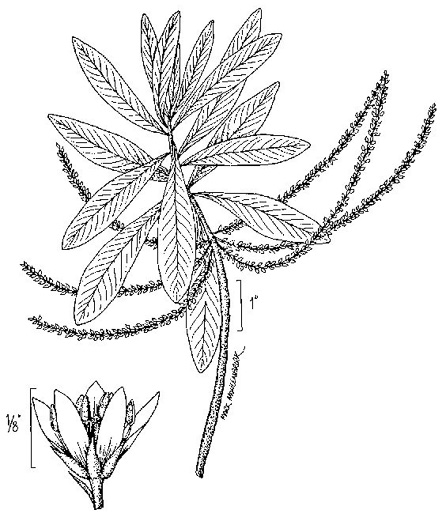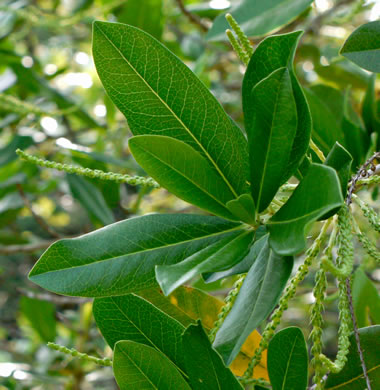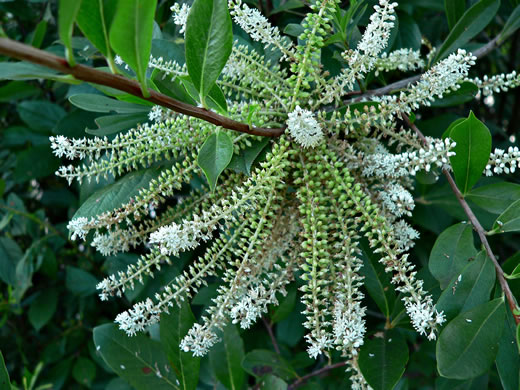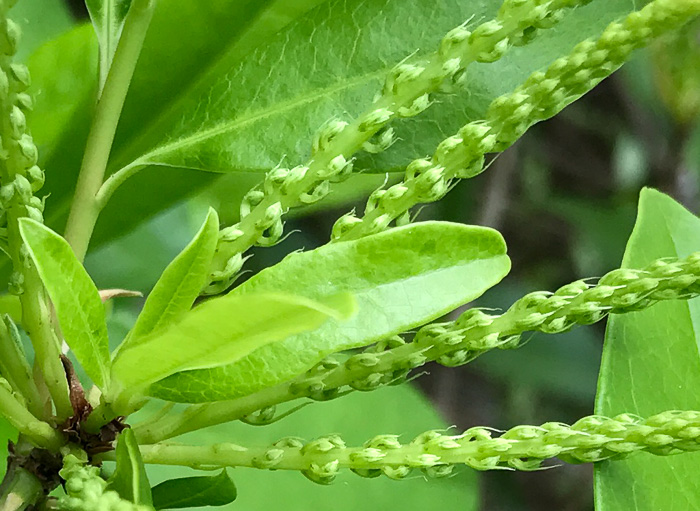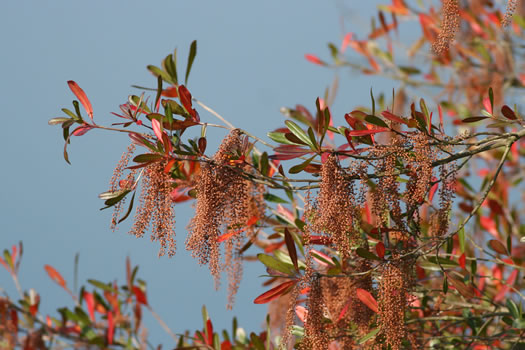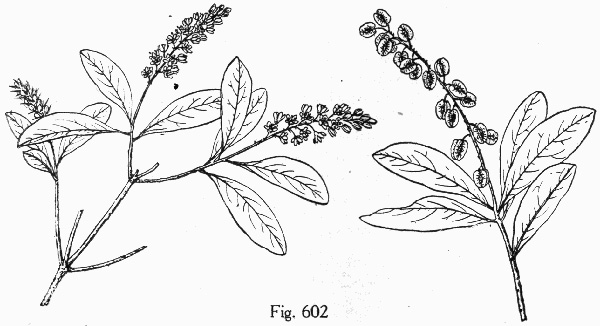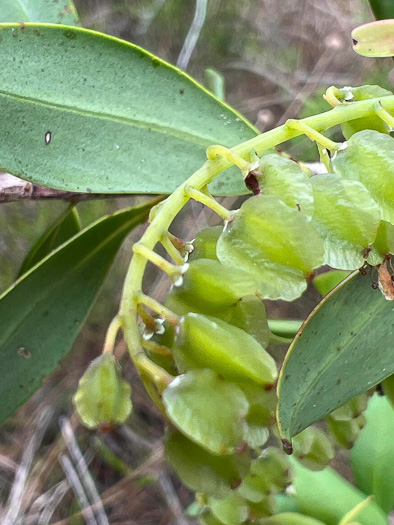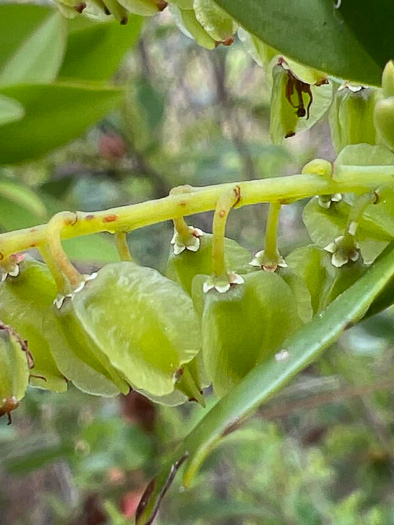Hovering over an image will enlarge it and point out features (works better on desktop than on mobile).
![]() A camera indicates there are pictures.
A camera indicates there are pictures.
![]() A speaker indicates that a botanical name is pronounced.
A speaker indicates that a botanical name is pronounced.
![]() A plus sign after a Latin name indicates that the species is further divided into varieties or subspecies.
A plus sign after a Latin name indicates that the species is further divided into varieties or subspecies.
Most habitat and range descriptions were obtained from Weakley's Flora.
Your search found 2 taxa in the family Cyrillaceae, Cyrilla family, as understood by PLANTS National Database.

![]()
![]() Common Name:
Titi, Swamp Cyrilla, Leatherwood
Common Name:
Titi, Swamp Cyrilla, Leatherwood
Weakley's Flora: (4/24/22) Cyrilla racemiflora FAMILY: Cyrillaceae
SYNONYMOUS WITH PLANTS National Database: Cyrilla racemiflora FAMILY: Cyrillaceae
SYNONYMOUS WITH Vascular Flora of the Carolinas (Radford, Ahles, & Bell, 1968): Cyrilla racemiflora 111-01-001 FAMILY: Cyrillaceae
Habitat: Pocosins, swamps, lake and pine flatwood pond margins, streambanks, pine flatwoods
Common (rare in Piedmont)
Native to the Carolinas & Georgia

![]()
![]() Common Name:
Buckwheat-tree, Black Titi, Buckwheat-bush
Common Name:
Buckwheat-tree, Black Titi, Buckwheat-bush
Weakley's Flora: (4/24/22) Cliftonia monophylla FAMILY: Cyrillaceae
SYNONYMOUS WITH PLANTS National Database: Cliftonia monophylla FAMILY: Cyrillaceae
Habitat: Acid bogs, bayheads, swamps, and streambanks
Common in GA Coastal Plain (rare in SC)
Native to South Carolina & Georgia
Your search found 2 taxa. You are on page PAGE 1 out of 1 pages.

